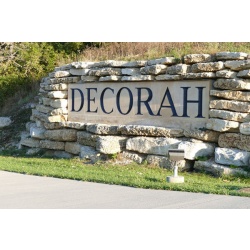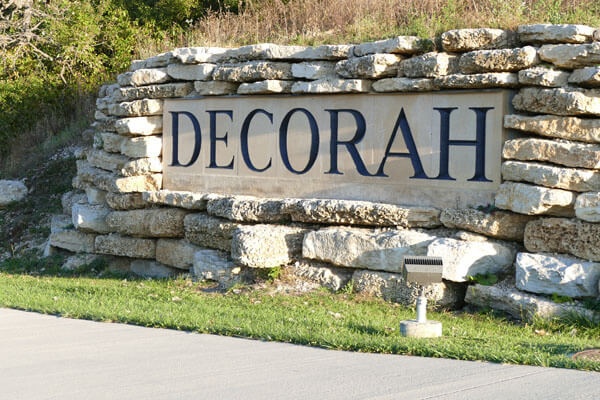
Drive to create an electric utility in Decorah gets regional news coverage
(Decorah's effort to create a municipal electric utility is drawing attention from Midwest Energy News, a nonprofit news website dedicated to covering energy issues in the Midwest.
Reporter Karen Uhlenhuth's story is posted below--with permission from Midwest Energy News):
"An effort is underway in a small Iowa city to create a municipal electric utility that would supplant the service now supplied by Alliant Energy, an investor-owned utility — the latest in a series of similar efforts around the country.
Although the leaders of the initiative acknowledge that it's a daunting challenge, they believe a locally owned electric utility would provide substantial benefits to the city of Decorah.
One of those is more renewable energy. Several attempts to develop renewable energy in Decorah have run up against policies of Alliant. Luther College, the largest electricity customer in Decorah, had to abandon a couple of renewable projects because Alliant said they could not be done.
Another project that encountered resistance from Alliant envisioned five large Decorah institutions generating and sharing solar power: Luther College, Northeast Iowa Community College, the city and county governments, and the Decorah hospital. The project could only proceed with the assistance and cooperation of Alliant Energy.
"Alliant said, 'We're not interested,'" said Andy Johnson, director of the Winneshiek Energy District, which played a large role in the project.
"We're stymied by Alliant's efforts to stop net metering," he continued. "Their new policy certainly creates new limitations."
The new policy, recently approved by the Iowa Utilities Board, is an experimental three-year tariff that applies to customers with distributed generation installed as of early May. Because of the new way that the tariff calculates a net metering cap, many clean-energy proponents worry it will make the economics of solar energy much less attractive and may discourage new solar installations.
Jon Jensen, who directs the Center for Sustainable Communities at Luther College, believes that a locally-owned non-profit utility could turn that around.
"We hope a municipal utility might let us do more experiments with renewable energy," he said.
It would provide other benefits, as Johnson and others see it. With local ownership, utility payments that now go to Alliant headquarters in Madison, Wisconsin would stay in Decorah, observed Larry Grimstad, a retired banker and the chairman of the board of recently formed Decorah Power. He claims that a local public utility would function just like a new business – a rather large business with a very reliable customer base.
That type of local investing, he said, is "going to be one of those saviors for small communities."
Grimstad and others decided the time was ripe for exploring the creation of a municipal utility because Decorah's 25-year contract committing it to buy power from Alliant will expire in May 2018. State law allows for the creation of a municipal utility, and the Iowa Utilities Board ultimately would rule on the matter.
Similar attempts have been made in several other communities with varying results. About 20 municipal utilities nationwide have been created since the year 2000, according to Tobias Sellier of the American Public Power Association. The largest of those was Jefferson County, Washington, he said, with 18,000 customers. In 2013, it took over the system from Puget Sound Energy.
Boulder, Colorado is still in the process of trying to create a municipal utility. Minneapolis abandoned its effort to go municipal in 2014 after the two utilities that provide the city with electricity and natural gas agreed to a "clean energy partnership."
"The road is long and hard," Sellier wrote in an e-mail. "As you'd imagine, few investor-owned utilities are quick to give up their service territory. The path to municipalization requires a dedicated community that is willing to spend the funds to conduct feasibility studies – and usually an organized grassroots campaign."
The Decorah effort now is focused on raising money to pay for a feasibility study, which is projected to cost about $60,000 to $70,000. The proponents issued a request for proposals and selected a consultant to appraise the value of the assets such as substations and lines and poles, and to analyze the power supply, the finances and operations and maintenance. Johnson said he hopes the feasibility study will get underway later this summer.
If the numbers look promising, he said, a citywide referendum likely will be the next step. If a referendum indicates a sufficiently high level of support for a local utility, the City of Decorah likely would assume management of the project at that point.
The city already has indicated some support. At a March meeting, the city council unanimously approved of Decorah Power conducting a feasibility study on behalf of the city, funded through donations. By a 5 to 1 vote, it put a moratorium through the end of 2017 on renewing its franchise agreement with Alliant.
The city would need to file an application with the Iowa Utilities Board, which would make a ruling on the matter.
Proponents of a local utility expect resistance from Alliant. They've gotten some. Decorah Power asked Alliant for some information that is integral to the feasibility study, figures about power sales to classes of customers, and a list of equipment and other property within Decorah. Alliant said that is proprietary information and refused to share it, according to Johnson.
He said the information can be obtained from another source, but will increase the cost of the feasibility study.
"No business is going to want a branch of their operation to be taken away from them," Grimstad said. "Obviously they will put up every roadblock, but we're saying, 'Let's proceed and see where it goes.'"
Alliant spokesman Mike Wagner said in an e-mail that although Alliant could not provide the information "due to confidentiality reasons, we did offer to provide similar information through a third party.
"Our goal is to provide customers the safe, reliable and affordable energy they have come to expect. In talking with our customers in Decorah, we've heard from many customers who appreciate what we do and our commitment to the community. We've also heard from many customers who appreciate the programs we offer, such as rebates to encourage energy efficiency.
"We look forward to continuing to find ways to advance clean energy and find new energy solutions in every community we are privileged to serve."
In the end, it will be the residents of Decorah who will decide the future of the initiative.
"The ultimate question we have to answer in Iowa is, 'What's in the best interest of the public?'" Grimstad said. "If we can't establish that this is in the best interests of the public, we won't be able to get it approved by IUB."
Site designed and maintained by Iroc Web Design Services©.
Your Small Business Web Design Solutions.™


